Beth Whitaker, Political Science, UNC Charlotte
Meets at UNC Charlotte (main campus)
Most Americans develop their impressions of Africa from portrayals in the media and popular culture. With the tendency of news media to focus on negative events, regardless of the setting, there is a common perception of African countries as full of war, poverty, and disease (or, as President Trump recently called them, “s***hole countries”). To be sure, news reports and Hollywood movies can raise awareness about important issues and generate interest in a continent that has long been marginalized. Even so, mainstream media portrayals of Africa often are over-simplified, formulaic, and paternalistic, reinforcing stereotypes about a continent and its people that can undermine genuine efforts to address ongoing problems. Instead of investigating the complex political, social, and economic processes at the root of Africa’s challenges, reporters frequently present a common narrative of good versus evil that is simple to understand and easy to fit within the limited space allotted for international news.
This seminar will explore the roots of ongoing and recent events in Africa by digging beneath the headlines. We will begin by using Chimamanda Ngozi Adichie’s “The Danger of a Single Story” to start a discussion about the portrayal of Africa in the media. Viewing clips from media reports and popular movies, we will critique the dominant narratives that are perpetuated by such works and discuss the risks these can pose. During the summer, Fellows will read important works by African authors such as Ngugi wa Th’iongo, Ousmane Sembène , Chinua Achebe, Mariama Ba, and J.M. Coetzee. Children’s versions of classics like Sundiata and Nelson Mandela’s Long Walk to Freedom also will be on the reading list. When we meet again in the fall, we will examine the underlying causes of the current challenges in many African countries. What are the sources of conflict in countries such as South Sudan, Democratic Republic of Congo, and Somalia? What are the obstacles, both internal and external, that hinder economic development and growth? What factors contribute to the spread of HIV/AIDS and the Ebola virus in parts of the continent? Perhaps most importantly, we will discuss innovations and policies that are being used to successfully address these challenges in some countries, even if we rarely hear about them in the news. Instead of dismissing media coverage of Africa entirely, we will discuss how to use news articles in the classroom and dig beneath the headlines to learn more about underlying dynamics. Fellows will develop their own curriculum units using media representations of Africa as an entry-point to a deeper discussion of the continent’s diversity and complexities.
This seminar may appeal most to social studies, English, and foreign language teachers, but will also be relevant to those from other disciplines. A math teacher might use population figures, income per capita, or inequality measures to illustrate key concepts, while a science teacher may reference Africa in a discussion of water purification methods or diamond mining. Health teachers can place topics such as malaria, HIV, and nutrition within a broader global context. In short, there are many subjects that can be explored in a seminar on Africa.
Additional resources:
- Novelist Chimamanda Adichie: Ted Talks
- Binyavanga Wainaina’s essay about “How to Write About Africa.”
Seminar Participants:
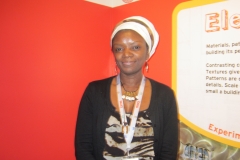


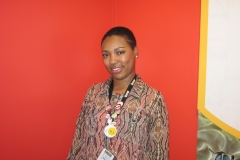
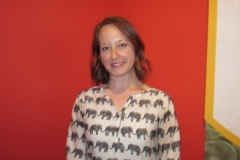


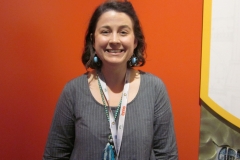
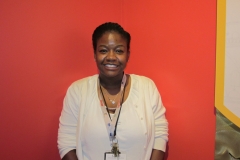
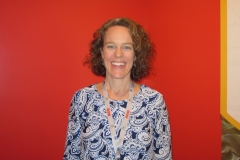



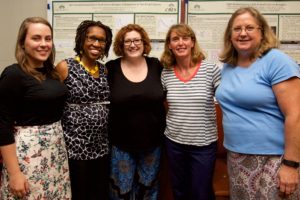
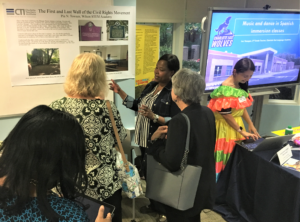





 Home
Home